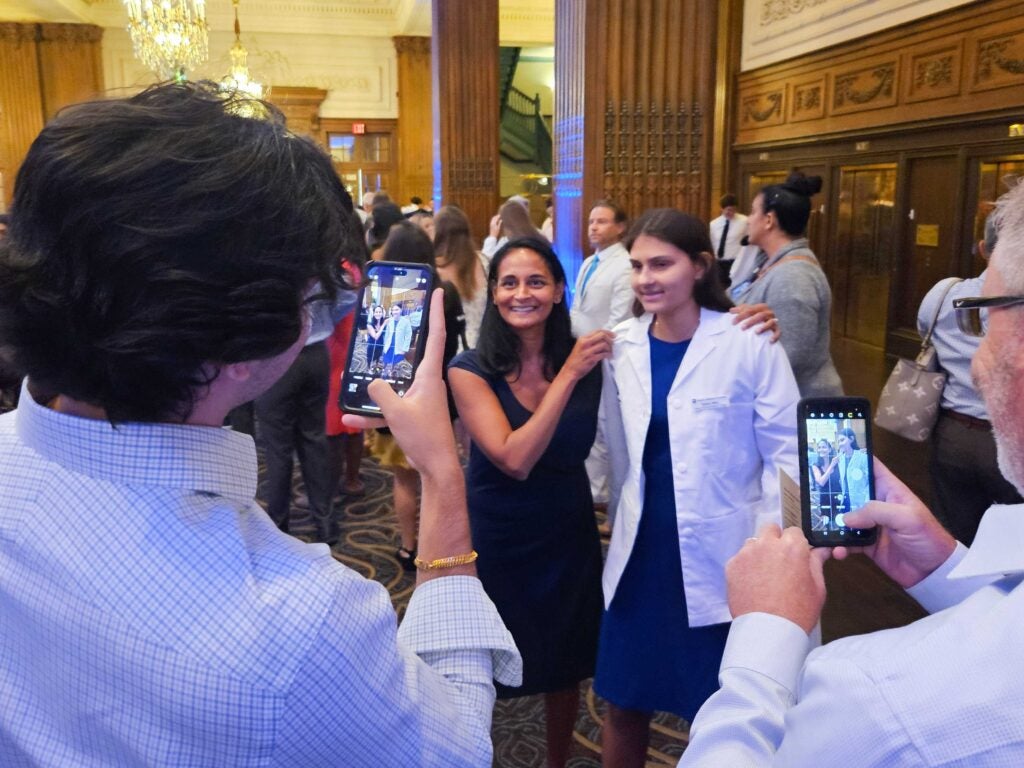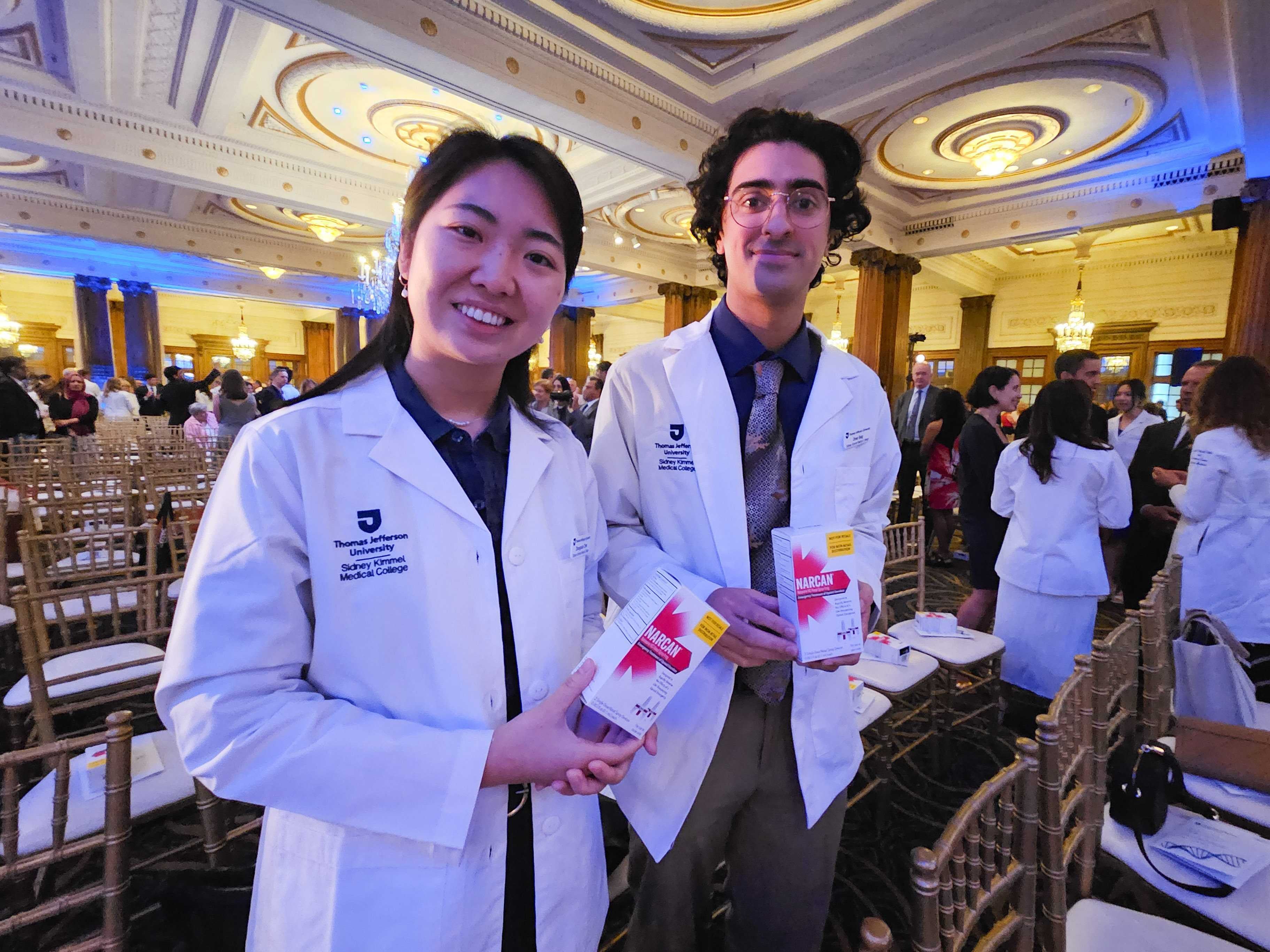From Philly and the Pa. suburbs to South Jersey and Delaware, what would you like WHYY News to cover? Let us know!
For first-year medical students in Philadelphia, the beginning of their career in health care is often marked with ceremony, sacred oaths and, more recently, tools to combat the addiction epidemic.
In efforts to reduce stigma around drug use and substance use disorders within the health care field, medical school programs are increasingly equipping future physicians with Narcan, a brand of the opioid overdose medication, naloxone, and training them on how to use it.
In addition to getting a short white coat that is a rite of passage for future doctors-in-training, 277 new medical students at Thomas Jefferson University also received their own doses of Narcan during a ceremony Friday in Philadelphia.
“Twenty years ago, addiction medicine was primarily in psychiatry, but now it’s every specialty,” said Dr. Abigail Kay, an addiction psychiatrist at Thomas Jefferson University’s Sidney Kimmel Medical College. “It’s just been a real game changer in letting people know they can make a difference.”
The university became one of the first area programs in 2019 to distribute Narcan to every incoming medical student and has since given the medication to every new class.

“It’s saying to [students], this is a disease just like any other disease and it’s really important to treat patients who have this disease,” Kay said. “The reality is, we can’t treat a dead patient. And so, by keeping someone alive, you are giving them the possibility and the hope of moving forward in their recovery.”

